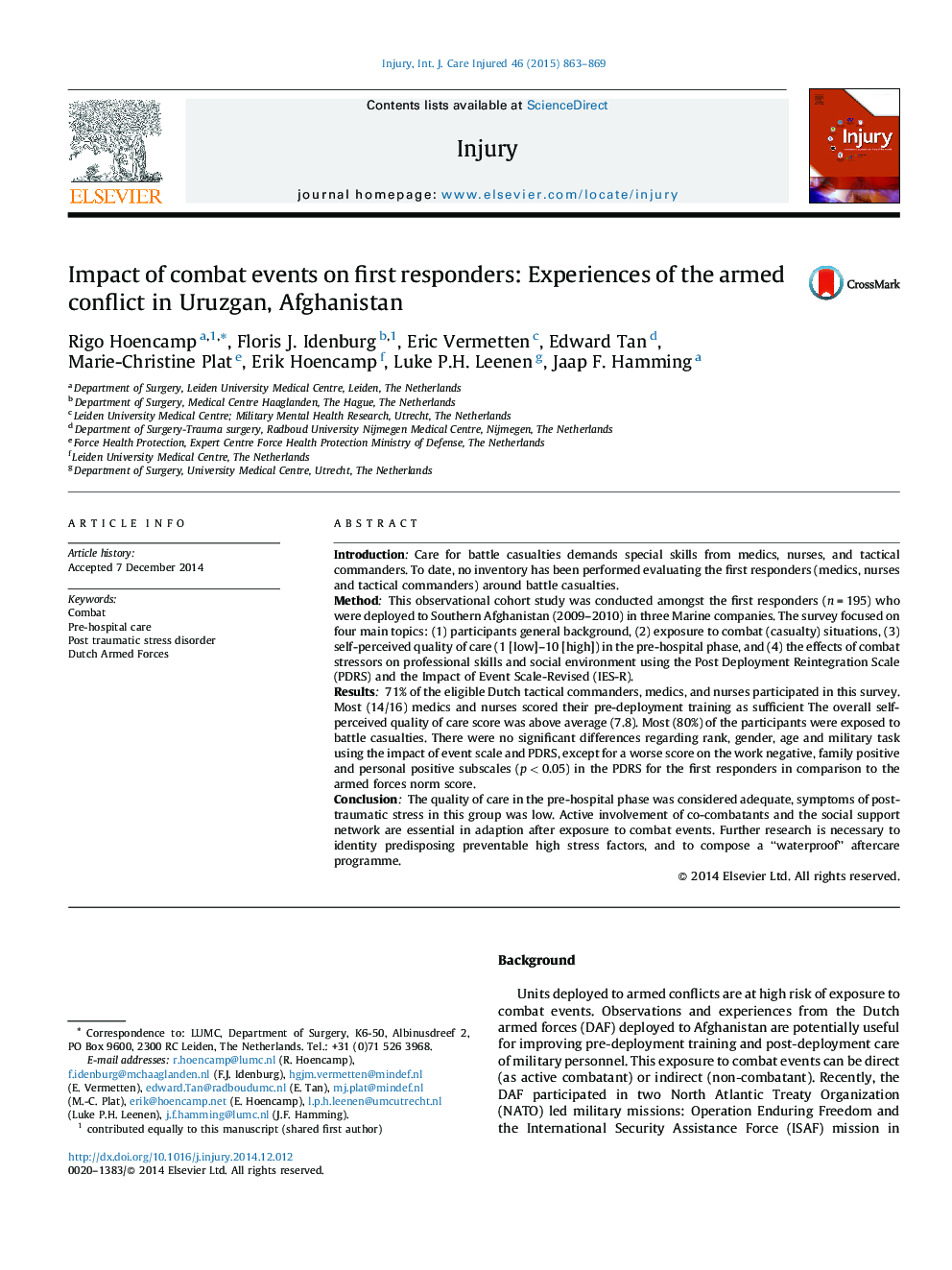| کد مقاله | کد نشریه | سال انتشار | مقاله انگلیسی | نسخه تمام متن |
|---|---|---|---|---|
| 3239330 | 1205997 | 2015 | 7 صفحه PDF | دانلود رایگان |
IntroductionCare for battle casualties demands special skills from medics, nurses, and tactical commanders. To date, no inventory has been performed evaluating the first responders (medics, nurses and tactical commanders) around battle casualties.MethodThis observational cohort study was conducted amongst the first responders (n = 195) who were deployed to Southern Afghanistan (2009–2010) in three Marine companies. The survey focused on four main topics: (1) participants general background, (2) exposure to combat (casualty) situations, (3) self-perceived quality of care (1 [low]–10 [high]) in the pre-hospital phase, and (4) the effects of combat stressors on professional skills and social environment using the Post Deployment Reintegration Scale (PDRS) and the Impact of Event Scale-Revised (IES-R).Results71% of the eligible Dutch tactical commanders, medics, and nurses participated in this survey. Most (14/16) medics and nurses scored their pre-deployment training as sufficient The overall self-perceived quality of care score was above average (7.8). Most (80%) of the participants were exposed to battle casualties. There were no significant differences regarding rank, gender, age and military task using the impact of event scale and PDRS, except for a worse score on the work negative, family positive and personal positive subscales (p < 0.05) in the PDRS for the first responders in comparison to the armed forces norm score.ConclusionThe quality of care in the pre-hospital phase was considered adequate, symptoms of post-traumatic stress in this group was low. Active involvement of co-combatants and the social support network are essential in adaption after exposure to combat events. Further research is necessary to identity predisposing preventable high stress factors, and to compose a “waterproof” aftercare programme.
Journal: Injury - Volume 46, Issue 5, May 2015, Pages 863–869
